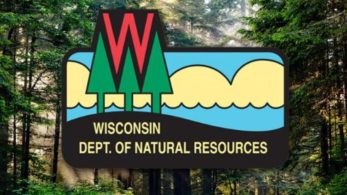Wisconsin Natural Resources Board Seeks Expanded Public Input
Contact(s): DNR Media Line, 608-266-3143, DNRPress@Wisconsin.gov
Additional NR 151 Public Hearings to be Held After Fall Harvest
MISHICOT, Wis. – The Wisconsin Natural Resources Board on Wednesday directed the Department of Natural Resources during their September meeting to expand public input regarding the department’s process in developing rules relating to the state’s water quality standards. The effort is intended to decrease nitrate pollution in areas of the state with highly permeable soils susceptible to groundwater contamination.
To achieve water quality standards required by state statute, NR 151 establishes statewide runoff pollution performance standards, prohibitions and practices for agricultural facilities. The rule also sets performance standards for non-agricultural facilities and transportation facilities.
The Legislature’s Joint Committee for Review of Administrative Rules called for a preliminary hearing on the scope statement that outlines the parameters of the rulemaking. The DNR sought NRB approval at the September meeting for that hearing. The Wisconsin Natural Resources Board is asking for the public hearings relating to this process be expanded to three cities across the state including Fond du Lac, Hancock Research Center and Blackhawk Technical College in Janesville to be held after Nov. 1.
“This is not the board delaying the process. This is the board wanting to increase the public input for this very important issue affecting Wisconsinites,” said NRB Chairman Dr. Frederick Prehn. “We are asking to expand public input because we truly want everyone at the table to help us tackle this. That also means making sure members of the agricultural community are part of this serious discussion which is why out of respect for their hard work during the harvest we ask for the public hearings to be held after November 1.”
By law, if the statewide performance standards and prohibitions do not achieve state water quality standards, the DNR may develop targeted performance standards.
“This is a critical issue that needs a transparent, robust public input process. The research shows that 39% of Wisconsinites rely on private wells for their drinking water and thousands of those wells have nitrate levels so high the water is unsafe. We must fix that,” said DNR Deputy Secretary Todd Ambs. “We look forward to beginning that discussion in November as we work toward the goal of clean safe drinking water for the citizens of Wisconsin.”
Nitrate is Wisconsin’s most widespread groundwater contaminant. Approximately 90% of nitrate in groundwater originates from agricultural sources such as land application of fertilizers and manure. Much of nitrate comes from fertilizer applied to corn fields and use of nitrogen fertilizer has been increasing for decades. Elevated nitrate can cause miscarriage, congenital disabilities, elevated cancer risk and other disorders.
Following these three preliminary public hearings, the next step is the DNR seeking NRB approval of the scope statement, which then allows the department to start a rulemaking process.
The public can watch board meeting webcasts online. After each meeting, the webcast will be permanently available on demand.
You may also like
-
DNR Seeking Landowners To Host Fall Gun Deer Hunt For Hunters With Disabilities
-
Find Your Next Outdoor Adventure In Wisconsin During Free Fun Weekend, June 7-8
-
2025 Spring Hearing Statewide Results Now Available
-
DNR Announces Milkweed As 2025 Plant Species Of The Year
-
High Numbers For 2024 Lake Michigan Fish Harvest
